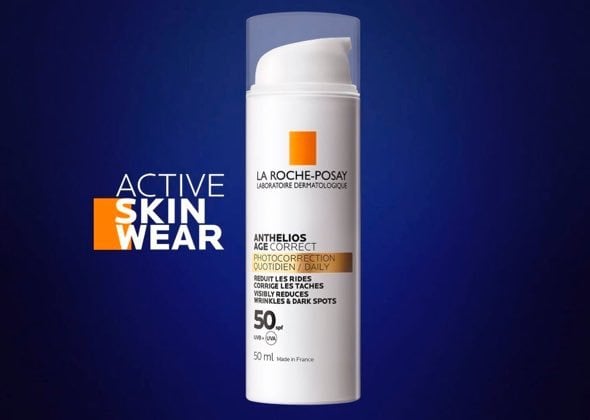WHAT IS
SENSITIVE SKIN?
Sensitive to reactive skin is defined by unpleasant sensations - prickling, tightness, itchiness, or burning sensations - sometimes associated with dryness and redness. Any skin type, whether dry, oily or combination, can become sensitive. The characteristic symptoms of sensitive skin may occur all the time or may be brought on by specific internal and external factors.
Is your skin sensitive, reactive or allergic? Find out HERE. OR HERE.
WHAT CAUSES
SENSITIVE SKIN?
Sensitive skin is thought to be due to oversensitivity of the nerve endings within the skin, which start to fire off pain signals in response to harmless stimuli. It is not known exactly why this occurs, but what is known is that these symptoms can be brought on by multiple internal and external trigger factors. Read on for a discussion of all the main causes of sensitive skin and, most importantly, how to avoid them.
EXTERNAL TRIGGERS
FOR SENSITIVE SKIN
Sensitive skin symptoms can be caused by internal and external factors. Let’s look at the external factors first.
Temperature changes and wind
External factors that can trigger skin’s sensitivity include heat, cold and wind. This is because these factors cause sharp temperature changes that trigger release of the itch molecule histamine in the skin. This causes annoying prickling or itching sensations and causes blood vessels to dilate resulting in redness.
What you can do: You can’t change the weather, but you can avoid excessively hot showers or baths, and try turning down the central heating in winter and the air conditioning in summer. To bolster your skin’s defences, envelop it in a minimalist soothing care product like TOLERIANE Sensitive.
Pollution
One top sensitive skin enemy is pollution. Fine particles called PM 2.5 (basically soot) adhere to skin’s surface, where they trigger a chain reaction of oxidative stress, causing irritation within the skin. This degrades its surface protective barrier, causing dryness and further increasing skin’s sensitivity to external irritants.
What you can do: The most advanced dermocosmetic solutions now come in pollution-proof textures that help stop irritant dust from sticking to skin and causing reactions. Ask your pharmacist about pollution-proof creams such as TOLERIANE Sensitive.
Sun
The ultraviolet radiation in sunlight triggers oxidative stress and inflammation in the skin, which can lead to the unpleasant symptoms associated with sensitive skin. Sun is also a “beauty enemy” in general, constituting one of the major causes of skin ageing and even acne.
Discover anti-ageing care suitable for even the most sensitive skin with REDERMIC and HYALU B5
EFFACLAR Duo(+) SPF30 is designed for acne-prone skin and shields skin from the sun.
What you can do: Integrate a sun protection product with SPF 30-50 specifically formulated for sensitive skin into your daily care routine. ANTHELIOS Ultra is a super gentle minimalist formula which is so safe you can even apply it on the delicate eye area with no risk of stinging or reactions.
Learn more about UVA-UVB protection HERE.
Additives in cosmetics
Many cosmetics are not created with sensitive skin in mind and include all kinds of potential “nasties” - colorants, fragrances, alcohol, lanolin… - which can trigger the symptoms of sensitive skin. Other than additives, certain products contain very harsh anti-aging ingredients such as extreme concentrations of alpha-hydroxy acids (AHAs), which can also leave skin feeling more than a little sensitive.
What you can do: Seek out products specifically formulated to soothe and support sensitive skin, which are hypoallergenic, free of the main “nasties” mentioned above and tested on sensitive to reactive skin types. TOLERIANE Sensitive contains no known allergens or irritants and works to restore skin’s surface lipid barrier plus strengthening its invisible barrier of friendly bacteria thanks to its prebiotic active ingredients. With the right care, skin’s sensitivity can be reduced day after day.
Click HERE to learn more about skincare for sensitive skin.
Washing powder and sensitive skin
Lotions and potions are not the only things that touch your sensitive skin: Clothes do too, and that means your skin also comes into contact with traces of washing powder or detergent. “Biological” washing detergents contain enzymes that can irritate the skin, while others are simply too concentrated in irritants like sodium lauryl sulphate that strip skin of its defences.
What you can do: If you have sensitive skin, opt for non-biological washing powders. Use only the necessary amount of powder or detergent based on the size of the load and how dirty it is. Finally, give clothes an extra rinse cycle before drying to remove any traces of detergent. If you have dry, itchy skin on your body, protect it with a rich soothing emollient such as LIPIKAR Baume AP+, which will help to bolster its defences.
Wondering if you have eczema or just dry skin? Click HERE to find out.
Sensitive skin after surgery
After an operation, you are likely to have a wound on your skin. While it is healing, it will be very sensitive to the touch and even light pressure can cause severe discomfort. After surgery, skin will be sensitive to anything but the gentlest care products.
What you can do: Keep your wound clean with a gentle cleanser specifically designed for healing wounds. Ask your pharmacist for recommendations. To help reduce your post-surgical skin’s sensitivity day after day, use a suitable pro-healing scar cream applied several times a day with a massage. This will optimise your scar’s healing. Again, ask your pharmacist to recommend a good scar cream or gel.
INTERNAL CAUSES
OF SENSITIVE SKIN
Now let’s look at the internal factors that can cause sensitive skin symptoms.
Spicy food
Ever noticed particularly piquant dishes can turn up the heat with your skin too? This is no coincidence: a substance called capsaicin in spicy food can trigger irritation receptors in the skin, leading to those all-too-familiar sensitive skin symptoms. Many people also find their skin flushes and reddens after eating this type of food.
What you can do: Though tasty, super spicy dishes are best avoided by people with sensitive to reactive skin. If you are going out for Indian food, why not opt for a mild korma?
Alcohol
Alcohol is a top cause of sensitive skin due to two important effects: First, it causes dilatation of the blood vessels in the skin, resulting in flushing and redness; second, it acts as a diuretic (a substance that flushes water out of your system) which dries the skin out, making it more vulnerable to external attacks.
What you can do: Moderation is the key! You don’t have to go teetotal, but you are advised to limit your alcohol consumption to around one medium-sized glass of wine per day (around 2 units of alcohol).
Skin symptoms of gluten intolerance
Gluten intolerance can affect your skin. In extreme cases, it is associated with a widespread blistering rash called dermatitis herpetiformis. Several other skin diseases such as psoriasis have also shown an improvement on a gluten-free diet. Gluten is not a common cause of sensitive skin, but it is worth considering if your symptoms flare up after eating bread, pasta or other gluten-containing foods.
What you can do: If gluten is a trigger for your sensitive skin, it is a good idea to try a gluten-free diet. You will have to get into the habit of checking food product labels for gluten, but the main change will involve eliminating grains such as wheat, barley and rye from your diet.
Hormonal changes
Many women find that the symptoms of sensitive skin are brought on by hormonal fluctuations such as their monthly cycle or the perimenopausal stage of life. Hormonal changes are particularly likely to worsen flushing and redness of the skin.
What you can do: If flushing is an issue, your first reflex is to spritz your skin with naturally soothing, anti-inflammatory and anti-oxidant Thermal Spring Water. Also ensure your sensitive skincare routine is on-point. Ask your pharmacist to recommend products specifically designed for sensitive skin, with anti-redness active ingredients such as ROSALIAC AR.
Stress or intense emotion
For some people, stress and intense emotion can be a trigger factor for sensitive skin. When you are flustered, the nerve endings in your skin start firing off pain signals and blood vessels in the face and neck dilate, causing visible flushing and making the face and neck feel hot.
What you can do: If you find your skin feels uncomfortable or flushed in high-stress situations, your first step is to try to get your stress under control. One technique with proven usefulness in this situation is Mindfulness: Focus your mind on the present moment and observe your thoughts in a detached, non-judgmental manner.
Of course, mindfulness in the middle of a high-pressure meeting or while chasing after a toddler can be a challenge! Luckily, you can treat and reduce skin’s sensitivity day after day with the right skincare, such as TOLERIANE Sensitive, which uses lipids to restore skin’s physical barrier and prebiotics to preserve its friendly bacteria. Result? Skin’s sensitivity is progressively reduced, and your skin becomes more resilient to the stress effect.
Click HERE for a complete skincare routine for sensitive skin.








